Building 21’s Teacher Competencies to Facilitate Competency-Based Learning
CompetencyWorks Blog
This is the third post in a series by Sandra Moumoutjis, Executive Director of Building 21’s Learning Innovation Network. Links to other posts in the series are at the end of this article.
The journey to competency-based education starts with defining your why and how CBE will help you achieve your desired outcomes for students. Defining the end goal is key in the backwards-design process that we use for both change management and instructional design. If we want to change outcomes for students, then—working backwards—what needs to change for the adults, and how do we clearly define and communicate those changes?
When we started our Building 21 Lab Schools in Philadelphia and Allentown, we spent all of our time defining what needed to change for students. We created our Competency Framework and figured out all the ways we wanted to change instruction, scheduling, crediting, grading, etc. We quickly realized that the ways in which we were changing teaching and learning for students required a very different set of skills for our teachers.
In transitioning to personalized and competency-based learning, it is equally important to outline what we want the adults to know and be able to do as it is to define that for our students. We asked ourselves, “What do we need teachers to focus on in their own personal and professional growth and development to support these changes in teaching and learning for our students?”
That process led us to the creation of our five Teacher Competencies. We developed these competencies and progressions not to be used as an evaluation tool, but to be used as a self-assessment, goal-setting, coaching, and feedback tool. Teachers can self-assess, identify areas for growth and improvement, and set goals. They can then work with peers and administrators to implement new strategies and ideas, get feedback, and collect and share evidence on how they are progressing toward their goals.
Below, I summarize the five Teacher Competencies we think are essential for supporting teachers in the journey to personalized and competency-based learning.
TC.1 Building Relationships
We believe that the foundation of every good school is built on strong relationships, but this is particularly important when you are trying to personalize education for every student. Creating a just, equitable, and caring learning environment where all students are known and valued is essential. Students must feel safe to take risks and to try and fail and try again. Cultivating this kind of learning environment is further supported using culturally responsive teaching and trauma-informed and restorative practices.

TC.2 Personal and Professional Growth and Development
We are very focused on ensuring that our students are developing their social and emotional skills, but this is something adults need to work on as well. We cannot expect our students to have a growth mindset, take risks, persevere through setbacks, and seek feedback and support if the adults are not able to do this themselves. Transparency around these goals, for both students and adults, helps to create a trusting and safe environment conducive to personal growth and development.
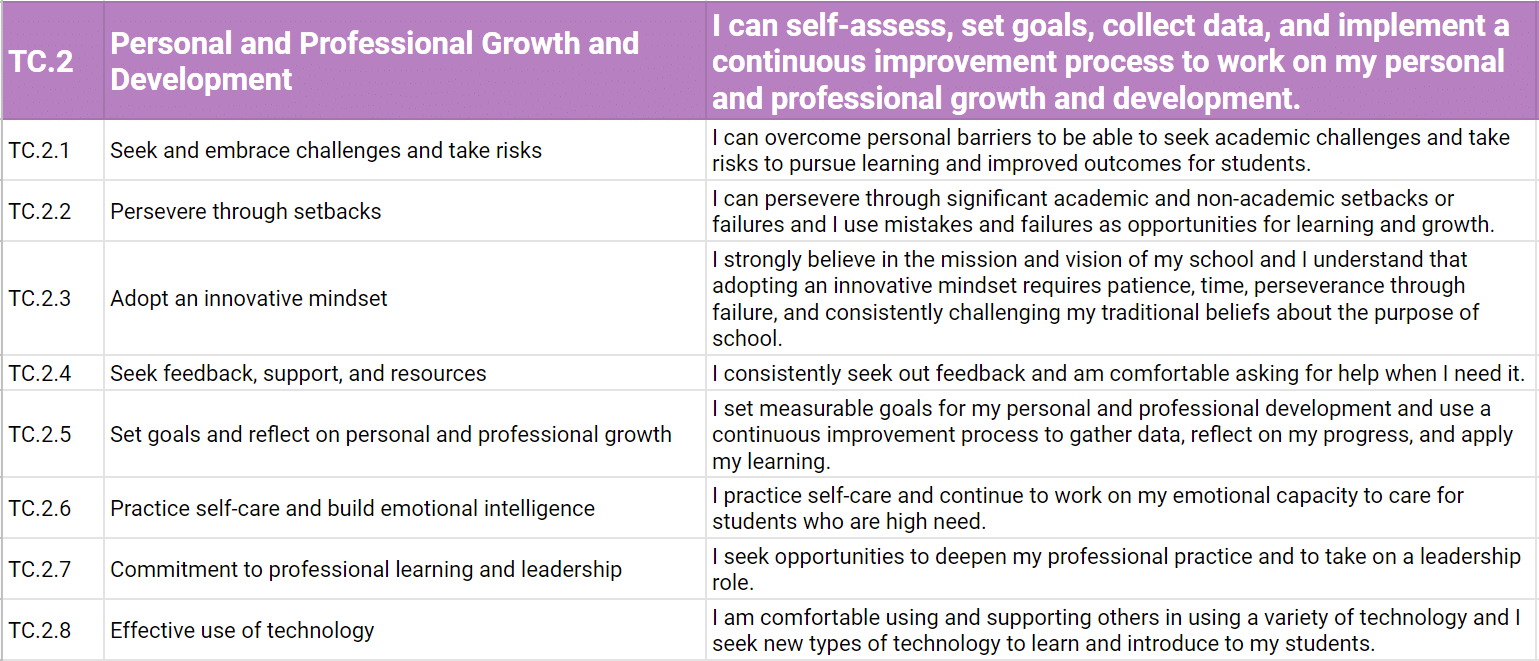
TC.3 Mentoring Through Advisory
One effective way we believe schools can support relationship-building and academic and social emotional growth is through an advisory model. In our lab schools, every teacher is an advisor to a group of students they stay with throughout their high school journey. The advisory becomes a second family for students where the advisor advocates for their advisees and helps them advocate for themselves. Not all teachers know what is expected of them in the role of advisor; this competency helps outline exactly what those expectations are.
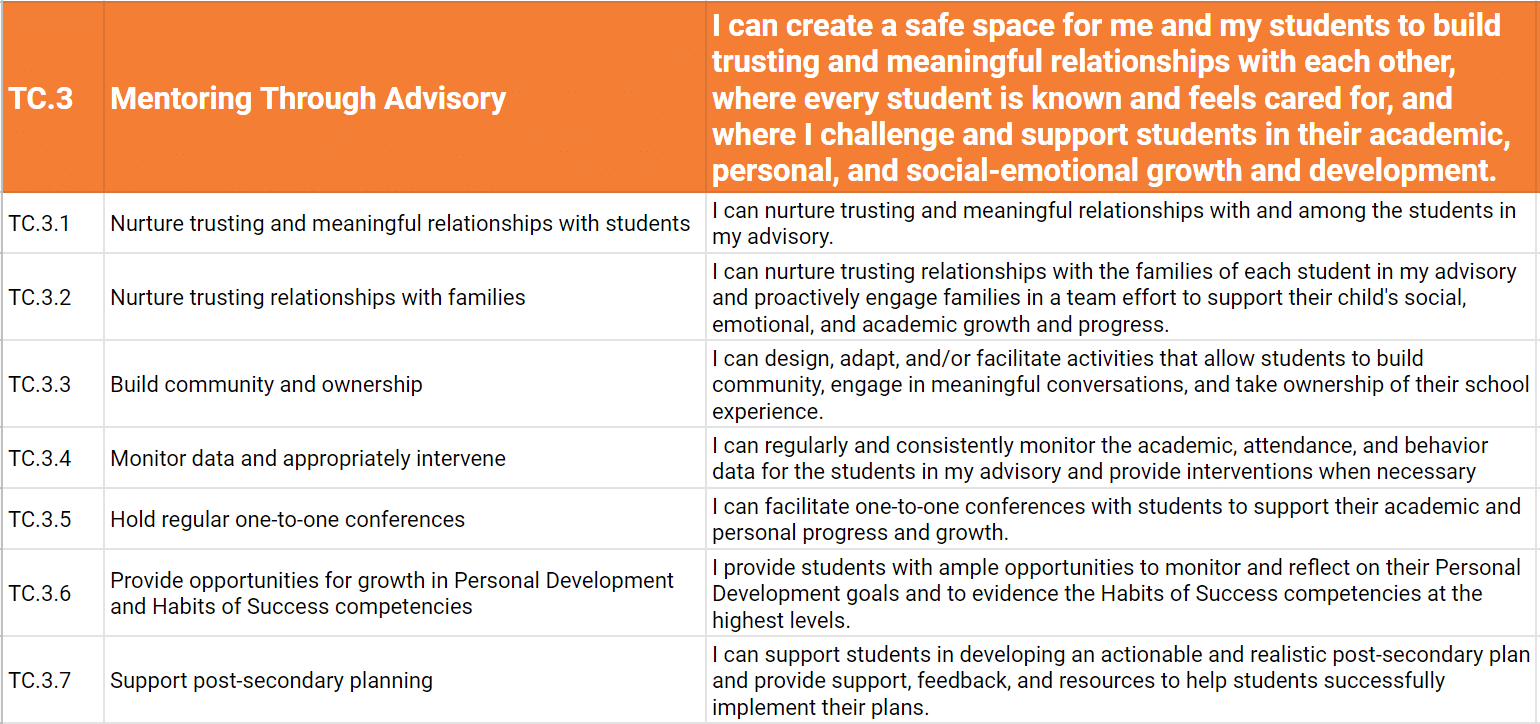
TC.4 Designing for Engagement and Impact
Part of making the shift to competency-based learning requires a different approach to instructional design and assessment. Curriculum becomes a resource that teachers use to adapt and design relevant, inquiry-based learning experiences that allow students opportunities to demonstrate their learning through performance-based assessments that are both rigorous and competency-aligned. We believe the learning becomes even more meaningful if students are examining real-world problems and relevant content with the opportunity to implement their learning for an authentic purpose or audience.
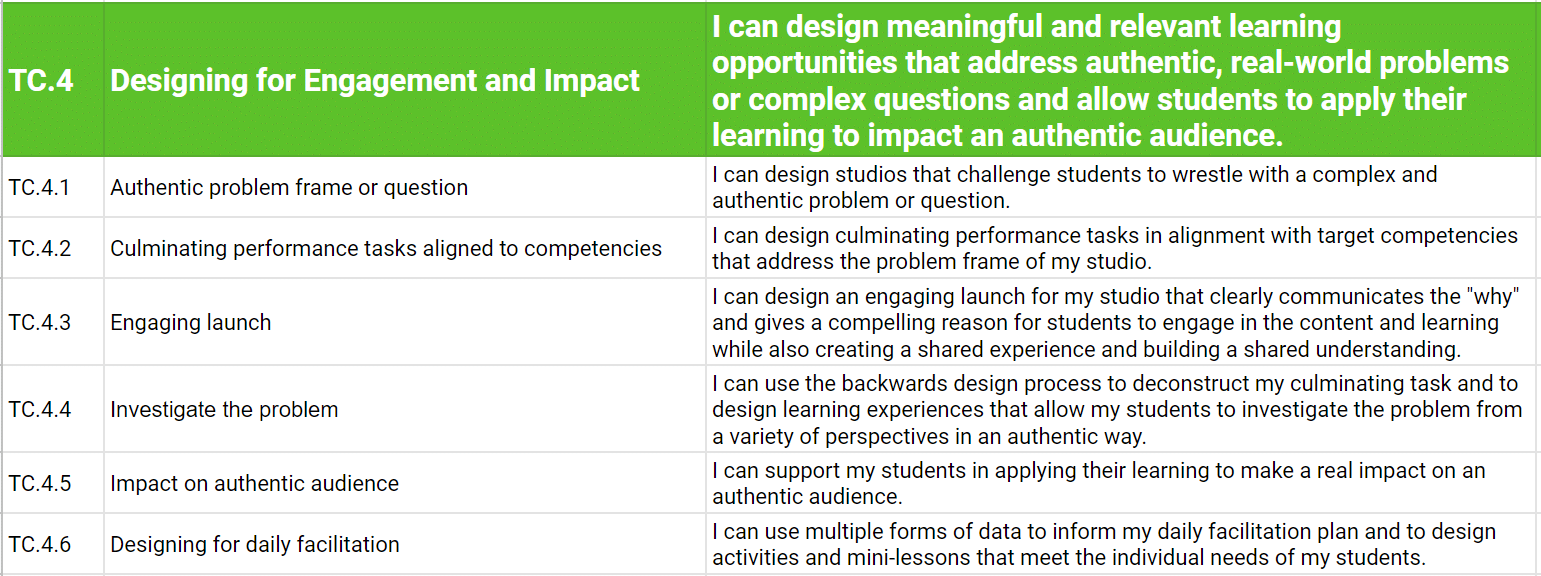
TC.5 Facilitating Personalized Learning
One misconception of personalized learning is that teachers don’t really matter; you can replace them with playlists and computer programs. I am here to tell you that teachers matter—a lot! Computers don’t teach students. Curriculum doesn’t teach students. Teachers teach students. But the role we are asking teachers to play is different. Facilitating personalized learning requires the teacher to transition from being the “sage on the stage” to more of a “guide on the side.” Becoming a facilitator of learning allows students to take an active instead of a passive role in their learning. You meet them where they are and give them opportunities to investigate, discover, learn, and grow. Teaching and learning take on more of a workshop feel where revision and feedback cycles are essential to the teaching and learning process.
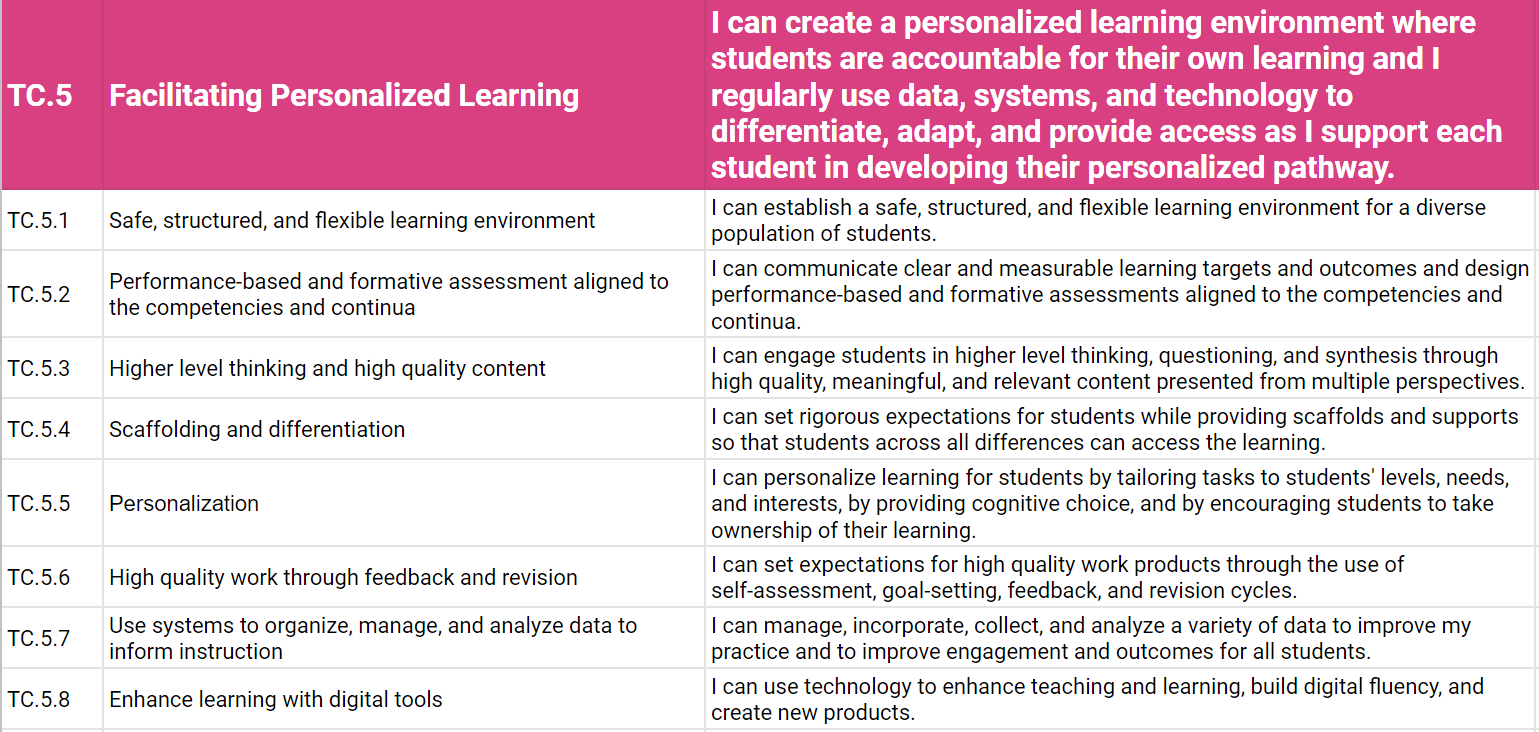
In addition to the Teacher Competencies, we created a Teacher Personalized Learning Plan (PLP) which allows teachers to self-assess regularly and set, track, and update their goals. Teachers are encouraged to share their goals and things they have tried both successfully and unsuccessfully as part of their personal and professional growth and development journey.
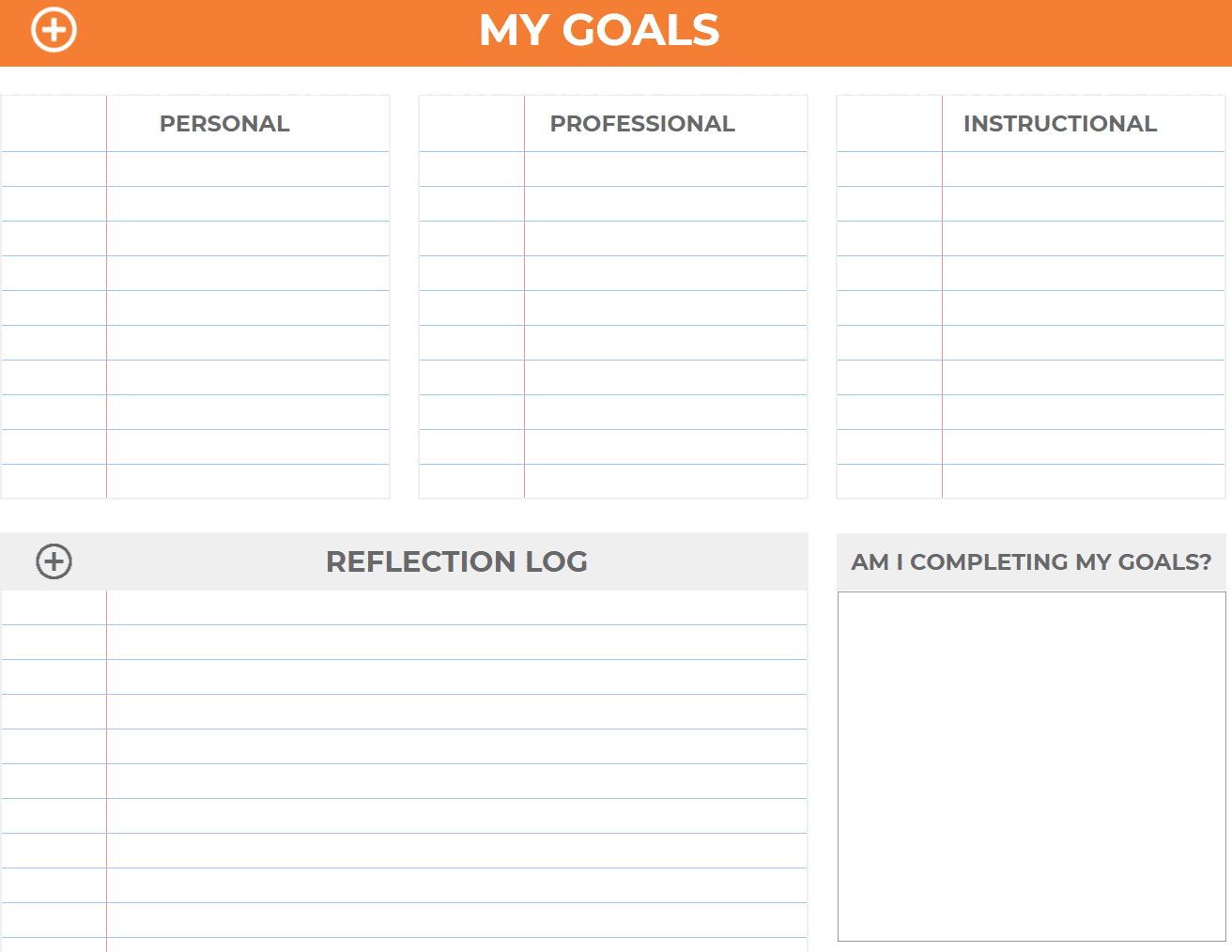
We also created a dashboard for school leaders and instructional coaches to aggregate the self-assessment data to set schoolwide goals as well as individual goals with teachers. The dashboard for the Building Relationships teacher competency is shown below.
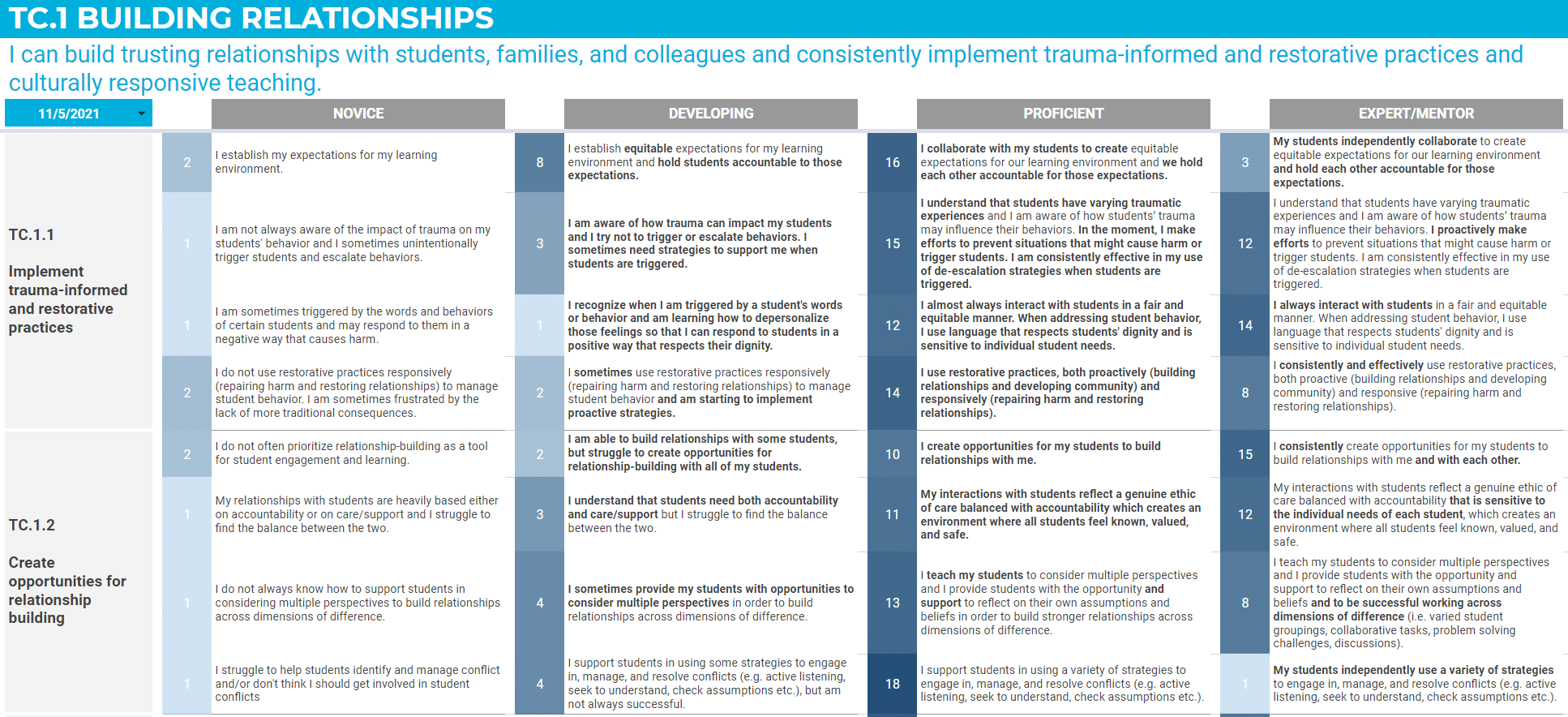
There is one question we are always asked: “When do you find the time to do this work with teachers?” Our response is that you must make the time. Focusing on adult personal and professional growth and development requires rethinking scheduling to allow for regular and dedicated time for professional development, collaboration, and coaching. In both our lab schools, we adjusted our students’ instructional minutes to be able to release them two hours early one day per week. Those two hours are devoted to professional learning for our adults—instructional design, student-work norming sessions, community building, goal setting and sharing, and personalized workshops. Our schools also built additional collaborative planning time for all teachers into the master schedule.
Supporting teachers, students, families, and the community throughout this transition to CBE also requires a different set of skills for our leaders. In my next blog post, I will discuss the School Leaders Competencies and the personal and professional skills that need to be developed in our leaders so they can successfully navigate the change management process throughout the journey to CBE.
Learn More (other posts in this series)
- Why Should Schools Transition to Competency-Based Education?
- Preparing for Your Competency-Based Education Journey: A Process for Success
- Building 21’s Leadership Competencies to Facilitate Competency-Based Learning
- Building 21’s Studio Model: Designing Learning Experiences for Engagement and Impact
- Replacing the Grammar of Schooling with Competency-Based Innovations
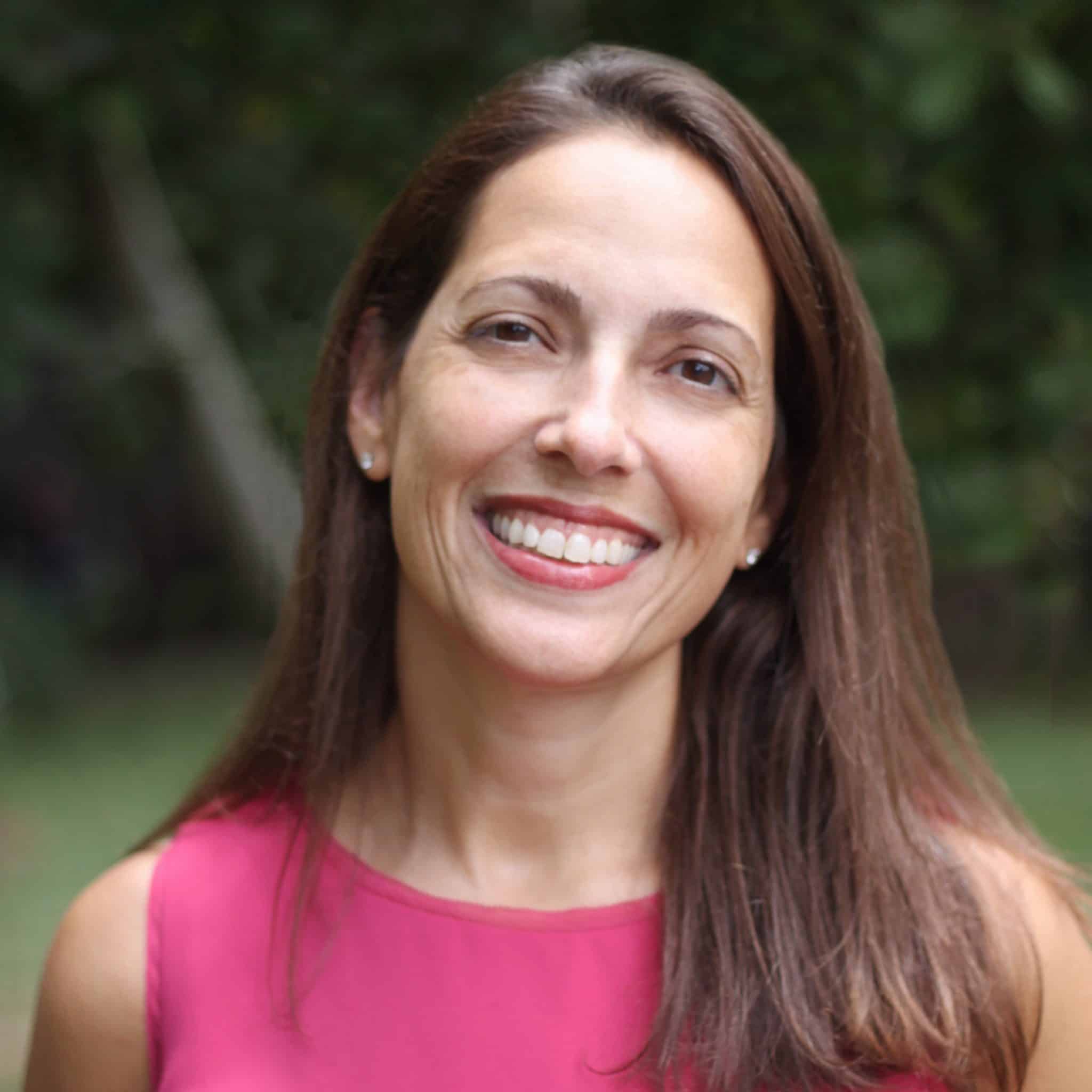 Sandra Moumoutjis is the Executive Director of Building 21’s Learning Innovation Network which is designed to grow and support a community of schools and districts as they transition to competency-based education. Through professional development and coaching, Sandra supports schools and districts in all aspects of the change management process. Sandra is the co-designer of Building 21’s Competency Framework and instructional model. Prior to working for Building 21, Sandra was a teacher, K-12 reading specialist, literacy coach, and educational consultant in districts across the country.
Sandra Moumoutjis is the Executive Director of Building 21’s Learning Innovation Network which is designed to grow and support a community of schools and districts as they transition to competency-based education. Through professional development and coaching, Sandra supports schools and districts in all aspects of the change management process. Sandra is the co-designer of Building 21’s Competency Framework and instructional model. Prior to working for Building 21, Sandra was a teacher, K-12 reading specialist, literacy coach, and educational consultant in districts across the country.